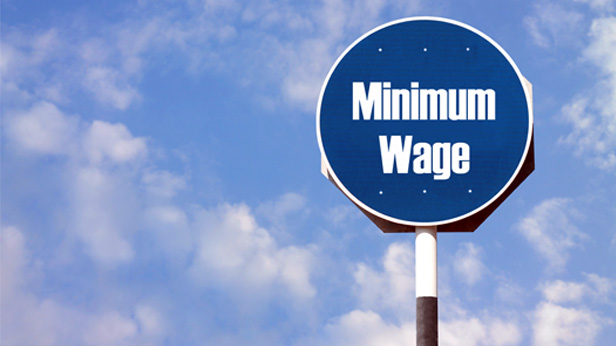News March 01, 2021
Proposed Federal Minimum Wage Hike Stalls
It’s a key development related to the $1.9 trillion federal aid plan. Others, like more PPP money, also are important for promo.
UPDATE 11 AM ET Friday, March 5, 2021:
The U.S. Senate on Friday was debating the $1.9 trillion rescue package. That, reports indicated, set the stage for the COVID relief bill’s approval by possibly the weekend of March 6/7.
A proposal to increase the federally mandated minimum wage to $15 per hour has stalled, one of a number of key developments related to the proposed $1.9 trillion coronavirus relief package that carry relevance for the promotional products industry.
On Friday, Feb. 26, the Democrat-controlled U.S. House of Representatives approved the COVID economic relief initiative known as the American Rescue Plan. That sent the legislation to the Senate for further consideration. Lawmakers that favor the legislation are eager to get it to President Joe Biden for signing by March 14, the date special unemployment aid programs are set to expire.

It appears any bill that would come before Biden will not include a hike of the federal minimum wage from the current $7.25 to $15 per hour. That’s because of a Feb. 25 ruling by nonpartisan Senate parliamentarian Elizabeth MacDonough, who determined that the Senate can’t include the would-be wage increase under the budget reconciliation process.
Reconciliation allows a piece of legislation to pass on a simple majority – just 51 votes, something Democrats, most of whom back the Biden-proposed American Rescue Plan, could potentially achieve because they hold a slim majority in the Senate (it’s 50-50, but Vice President Kamala Harris is the tie-breaking vote.)
Still, MacDonough ruled that for Democrats to use that process (as they intend to), the minimum wage increase can’t be included. CNBC reported that she made the ruling after hearing from Democrats and Republicans about whether the proposal met strict standards for deficit effects needed to include it in the process. There was talk that Democrats could try a workaround to advance the $15 minimum proposal, but as of this writing those efforts were not proceeding.
States can have their own mandated minimum wage, but it can’t be less than the federal standard. While advocates, including Biden, say increasing the wage is essential to bring hard-working people out of poverty, some business leaders and politicians have argued it could dampen hiring and hurt small businesses.
Business taxes, China tariffs, minimum wage, economic stimulus, COVID & more -- how will the Biden administration's plans on such things impact the #promoproducts industry? Some answers: https://t.co/ns0p3ibFM1 @ASI_MBell @asicentral @Tim_Andrews_ASI
— Chris Ruvo (@ChrisR_ASI) February 3, 2021
Certain promo executives have expressed concerns that a hike to $15 hourly will cause a steep rise in overhead, potentially affecting everything from product price to profit. An executive at a New York-based supplier firm recently told ASI Media that the issue isn’t just about a jump in the minimum itself. There are ripple effects, like compensating other workers proportionately based on job responsibility and the minimum wage increase. “It’s also how do you scale everyone up who was previously in the $16-to-$20 range,” the executive said. “Do you leave them, or do you slide them up too?”
The House’s version of the $1.9 trillion American Rescue Plan included a minimum wage increase. If the Senate passes the bill without that provision, the House will likely have to re-approve the bill, something House Speaker Nancy Pelosi, a Democrat from California, has indicated would happen.
More PPP Money & Other Business Supports
The relief plan Congress is considering currently contains provisions that could be of benefit to businesses in promo and their clients.
For instance, the bill would earmark $15 billion for the Emergency Injury Disaster Loan (EIDL) program, which offers low-interest, long-term loans through the U.S. Small Business Administration. Under the proposal, businesses with fewer than 10 employees that have been badly impacted by financial hardship from COVID will be given priority for some of this EIDL money. Certainly, many promo firms would fit the priority profile. North American promo distributors’ sales decreased, on average, by 19.8% in 2020.
Additionally, the bill would pump $7 billion more into the Paycheck Protection Program (PPP), a federal program that allows businesses to receive low-interest loans – completely forgivable if certain parameters are met – to pay for payroll and other costs. Promo firms relied on PPP in 2020 to help them through periods when business had effectively disappeared amid COVID-driven shutdowns and related factors. Demand for PPP has continued to be strong in promo in 2021.
With #COVID still causing major challenges for #promoproducts companies, firms are rushing to apply for more #PPP loan support. Some say it's essential to keeping their businesses open. https://t.co/1P5MZ9tXOt @ASI_MBell @CJ_ASIEditor @asicentral @Tim_Andrews_ASI
— Chris Ruvo (@ChrisR_ASI) February 1, 2021
Meanwhile, the $1.9 trillion aid plan would establish a new $25 billion grant program for bars and restaurants. Through the initiative, such businesses could receive up to $10 million grants that could be used for everything from payroll, mortgage payments and rent, to expenses tied to food and beverages. The program could indirectly benefit promotional products distributors who work with bars and restaurants, which could be in a better position to market themselves with a stronger cash foundation. Bars and restaurants could be poised to up their marketing investment as the year goes on, with greater societal reopening possibly occurring.
